Tips for y lovely website links is down below
Too often, sales teams are caught up in filling their pipelines with the next batch of leads or following up with prospects.
The funny thing is, the most valuable part of your pipeline is the people who've already purchased something from you. On average, 20% of a company's customers are responsible for 80% of their future profits, so it makes sense to take care of them.
Sure, saying thank you is a polite gesture. But if you say it the right way, it can cement your relationship with that customer (and guarantee their future business).
We’re going to look at:
- Why it’s important to say thank you
- What takes a thank you from “good” to “great”
- How to send the perfect thank you
- In a note
- In a letter
- In an email
Let's dive in!
Why it’s important to say thank you
Hearing a “thank you” is always nice. But when you say it to a customer (the right way), it can mean a lot more.
You’re not only acknowledging their business and showing them you appreciate it, but you’re also planting the seeds of building your brand loyalty. It shows them that you’re not just another faceless revenue machine—you appreciate their business.
But how much do customers care about feeling appreciated? It turns out they care a whole lot.
A study by NewVoiceMedia found that feeling unappreciated is the top reason customers switch companies:
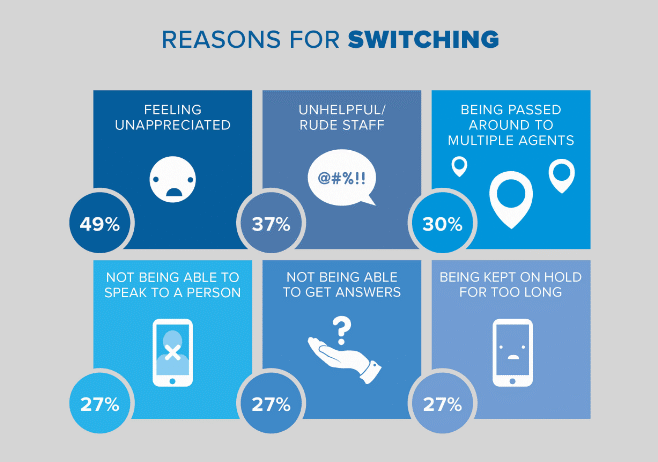
BUT HOW MUCH WEIGHT DOES A “THANK YOU” CARRY IN A REAL-LIFE SITUATION?
After a bunch of hard sells from companies (and only one call to say thank you), Marketing Consultant Jeffrey Slater decided to run a "thank you experiment."
After he received the single thank you call, he asked the company's owner to test something out. He told him to get his ten sales reps to call up each of their customers (who’d bought something in the last 18 months) and deliver the same thank you message.
The result? He started seeing a 10% increase in orders from those customers.
The reason this tactic worked? Well, saying thank you is not only simple; it's sincere. In today's digital world, we don't get nearly enough face-to-face time with our customers. Sending a sincere thank you (no matter if it's by phone or snail mail) is a way for us to nurture relationships and shake our customer's hand (digitally).
So, now that you know why you should say thank you, how do you do it?
What takes a thank you from “good” to “great”
The most important part of taking a "thank you" from good to great is making it genuine. Start it on a high, personalize the middle, and round it off with another thank you.
Start it on a high
Start your thank you on a positive note. Whether you're sending a handwritten note or an email, make sure it gives off a positive vibe from the moment it lands in your customer's inbox (or mailbox).
For email thank yous, this is especially important—only 7% of customers prefer being thanked over email, so don't hold back on giving your email the best shot at being opened. Personalizing an email’s subject line can increase its open rate by 50%, so try something like "Thanks for being an awesome customer, (customer's name)."
One rule of thumb is to include words like “thank you,” “valued,” or “appreciated” (if you don’t like these specific ones, that’s fine, just use a thesaurus) in the intro of the thank you. Communicating your sincere gratitude is the key here.
Personalize it
No matter if you’re saying thank you in a note or an email, personalizing it is the easiest way to make it more genuine.
For example, mention something significant that happened over the time that your customer has been with you. If they've launched a new product or won an award, mention it in your thank you. It could look something like:
"I just wanted to say thank you for the last year of working together; it's been a blast! Even better that we got to see your company take home the (insert their company's milestone/award win, etc.)”
Cement your future relationship
Next, indicate that you’re looking forward to continuing your working relationship with them.
“We really appreciate you as a customer, and as you’re someone who has used our product for the last year, we would love to hear if you have any additional feedback or questions about using it. As always, I’m here for you over phone or email. I look forward to hearing from you soon about (insert upcoming milestone/product launch etc. your customer is working towards)!”
This reinforces that you appreciate them as a customer, which means you’ll do what it takes to keep their business over the long term.
Hit them with another thank you
Keep it simple. Finish it off with something short and sweet like “Thanks again for a super first year together—looking forward to many more to come!”
The sign off is a chance to add in a last bit of personalization to the thank you.
Pro-tip: Don't just say "thank you for your business." It's impersonal, and the opposite of the genuine thank you that you're aiming to get across. You’re trying to strengthen your relationship, not a continued business transaction.
How to build the perfect thank you
Saying thank you at the right time can make just as much impact on a customer as the thank you itself.
Step 1. Look into your customer database for milestones/anniversaries
The first step of writing out a thank you note is deciding why you’re sending it.
Has the customer been with you for a significant amount of time? Is it their company’s birthday? Or maybe they just celebrated a massive product launch, and it’s time to show them some love.
Whatever the reason, timing is everything and can make the thank you even more powerful.
If you’re using a CRM, it’s easier to nail the timing and delivery of your thank you. All you need to do is pull up your customer list:
COPPER ALLOWS YOU TO PULL UP THEIR ENTIRE CLIENT LIST SO IT’S EASIER TO SKIM FOR ANNIVERSARIES AND BIRTHDAYS.
Next, check your customer’s notes.
If your team has been storing information about your customers’ milestones and feedback about your product—and they should be—now is the time to use it. (Conveniently, it's also the key to customer retention.)
Referencing seemingly minor (they won’t be minor to your customers) details like these can take your thank you to the next level:
IN COPPER, YOU CAN KEEP NOTES ON YOUR CUSTOMER’S MILESTONES SO IT’S EASIER TO PERSONALIZE THANK YOU NOTES IN THE FUTURE.
Once you know why you’re reaching out to say thanks and how you’re going to tailor it to your customer, narrow down how to deliver it in the next step.
🚀 your productivity
Learn about the thousands of other tasks your CRM can take off your plate for you with this handbook.
Step 2. Decide how to deliver your thank you
Not all thank yous are made the same.
Depending on the reason for saying thanks to your customer, there are a couple of different ways you can deliver it:
- By note (If it's for a relatively minor thing, like thanking your customer for their feedback on your product)
- By letter (If it’s for a high-ticket client, or you need to make it a bit more serious)
- By email (If you want to keep it informal and fun)
Say thanks in a note
Sending an old-school, handwritten note is up there with the most sincere ways you can thank a customer. Handwritten notes have an 80% open rate, so sending a thank you via snail mail has a much higher chance of being read by a customer than if you were to use another avenue like email.
Writing a thank you note doesn't cost much, and it doesn't take much time either. But what it will get across to your customer or client is that you took time out of your day to thank them for being great to work with.
When you’re writing your note, be sure to:
- Greet your client by name
- Express your gratitude and clearly state why you’re sending the note
- Include details about why you enjoyed your experience with this customer (be specific and personalize it as much as possible)
- Repeat your thanks
- Close with a sign-off and sign your name. If your relationship with your client is formal, you can sign off with a "best/regards." If it's more casual, don't be afraid to mix it up and inject a bit of personality into your sign-off by saying something that feels more natural, like "cheers."
Here’s an example of what a thank you note might look like:
Hey (customer’s name)!
Thank you so much for the wild ride we've had over the past year. It's been amazing to see your business achieve (insert achievement) and watch your customer base grow as a result. We especially appreciated you reaching out to help us with (insert any feedback/recommendations made by the customer), it's helped us a lot. We're so chuffed you've chosen (your company name) to go on this ride with you — thanks for giving us the chance to help you grow!
Cheers,
(your name) and the (your company) team
Pro-tip: If you have many customers to thank and not a lot of time, companies like Inkpact can send handwritten notes to your customers for you. Just type out your message, and they’ll take care of the other stuff like printing and posting:
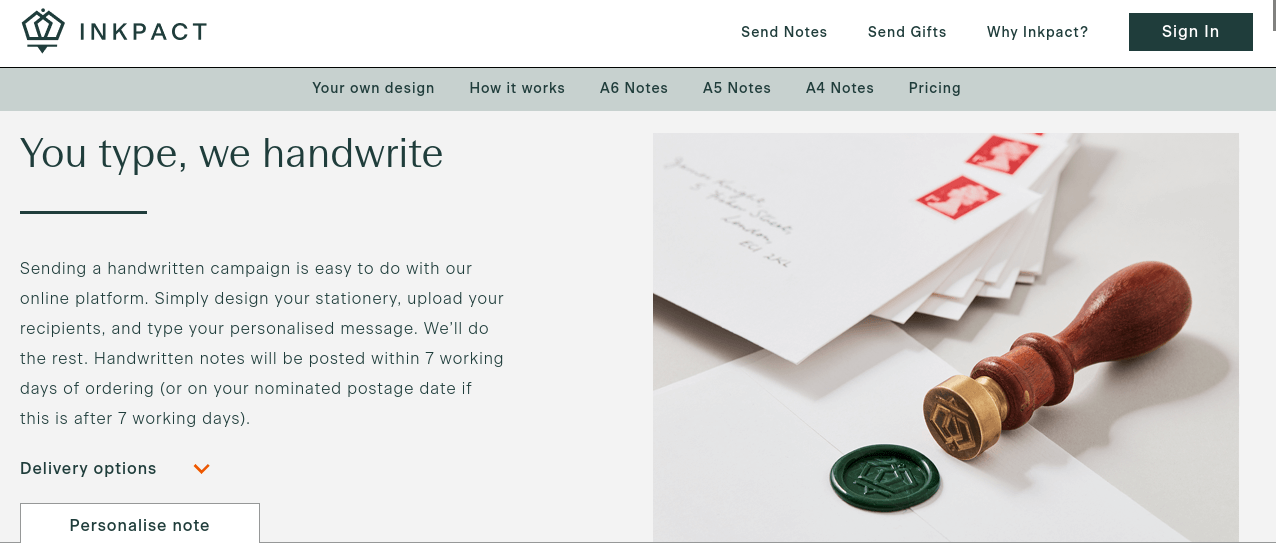
2. Say thanks in a letter
If your customer is a big-ticket or more traditional client, sending them a brief note might not seem like enough.
In cases like this, you may want to send a formal thank you letter instead. For example, if you teamed up with a client on a case study or they referred a lot of business your way, you might want to say thank you with a slightly higher level of appreciation.
The thing about thank you letters is, the timing matters. If you're thanking a client for a referral, you need to send the letter when the referral is still fresh. Or, if you're thanking a client for cooperating on a case study, the thank you letter should coincide with its release to make more of an impact.
A thank you letter might look something like this:
Dear (client/customer),
Thank you so much for all of your help with getting our recent case study on your business published. Your expertise and insight into how our business is helping you achieve your goals were hugely appreciated by our Marketing team.
Our Product team in particularly loved how you’ve found unique ways to adapt (product feature) and (product feature) to fit your campaigns. We really appreciate you pointing these out to us, as they not only help with the ongoing development of our product, but they also show our newer customers what’s possible.
In the meantime, if we can do anything to return the favor, please don't hesitate to reach out.
Best regards,
(Your name)
The longer letter does two things. It allows you to go a bit more in-depth about how they helped you and why you appreciate their business. And for more formal customers or big-ticket clients, it shows a sense of professionalism that often goes hand in hand with larger accounts.
Pro-tip: If you really want to give the letter some oomph, send it alongside a quirky gift.
3. Say thanks in an email
The third way you can say thank you is through an email.
Emails have changed a lot in the last decade. We’re automating them, optimizing them, and personalizing them to get higher engagement rates.
But if you're sending a thank you over email, it's easy to slip into a trap of sounding robotic and impersonal. To avoid this, make sure you:
- Address the customer by their first name
- Send the email from your company email address. A thank you that’s sent from a generic email address (like “info@yourcompany.com”) loses a bit of its personal touch.
- Keep it casual. This isn’t a formal thank you letter, so have a bit of fun with it. Throw in an emoji or two, and show a bit of your personality (unless your customer relationship is formal, then hold back on these).
- Don’t use it as a sales pitch. Just don’t do it. No mentions of offers or upselling allowed.
Even if a customer is brand new, it still pays to say thanks to begin your relationship, like this:
Pro-tip: If your CRM hooks up to Gmail or another email provider, you can personalize and automate your thank you emails. For instance, using Copper, you can quickly create a template for thank you emails:
CREATING AN EMAIL TEMPLATE THAT YOU CAN USE TO EMAIL CUSTOMERS EN MASSE—BUT THAT IS ALSO PERSONALIZED FOR EACH SENDEE.
In the example above, if you're sending a thank you email to customers who've all recently hit their one-year anniversary with you, use merge tags (the blue and green fields above) that’ll automatically fill out certain details, like the customer's name and company name, for you.
Automated, yet personalized. Magic.
A simple thank you can score you a client for life
It’s easy for sales reps to get caught up in stuffing their pipelines full of new leads and prospects.
But looking at the stats, the most valuable people in our pipeline are those who are already in business with us. The best way to keep that business flowing it to make sure those customers feel valued and appreciated.
Pick your moment and then pick your medium (handwritten notes, letters, and emails all work for different occasions)—and then start writing. If you send your thank you sincerely and at the right time, it can score you a customer for life.
Thanks for this post to
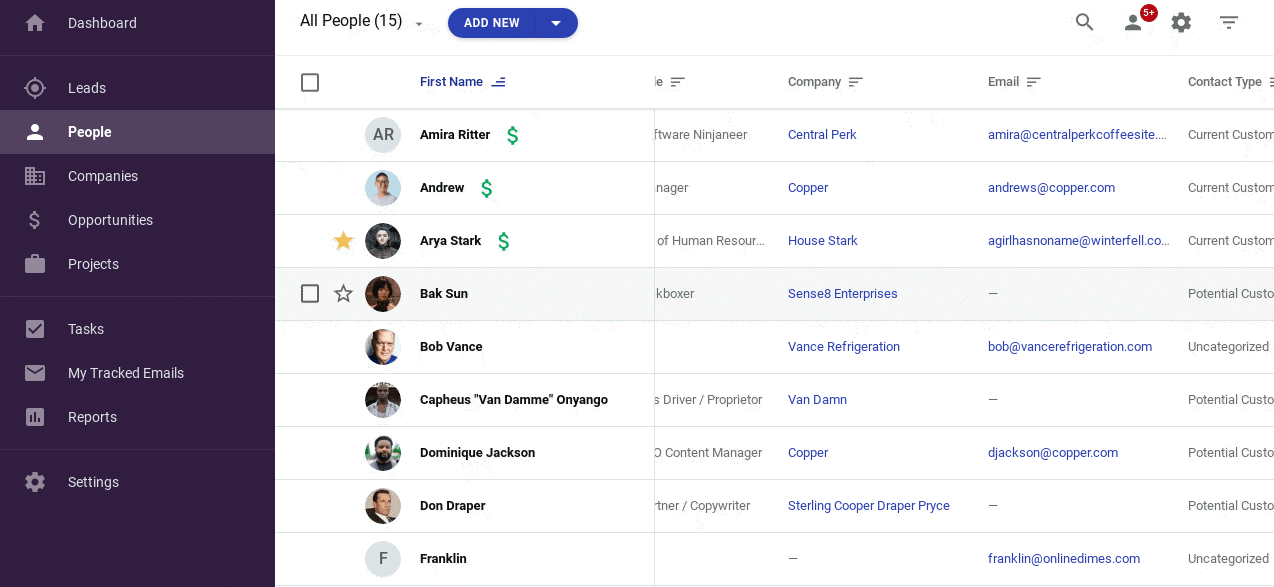
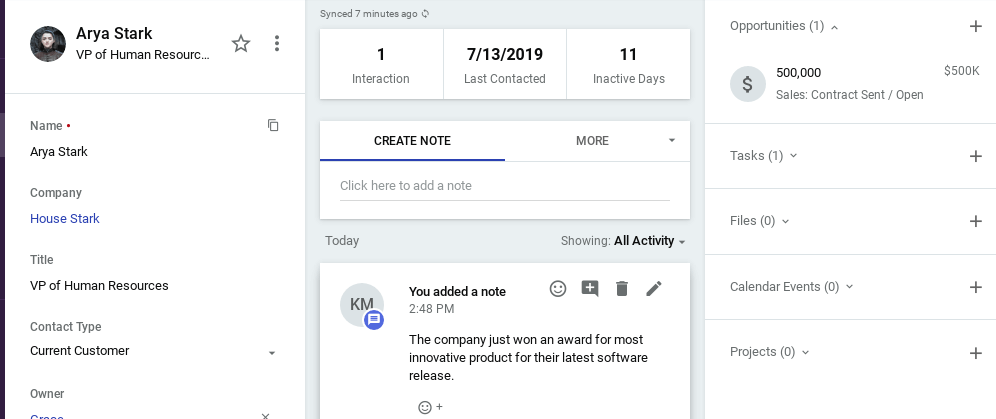
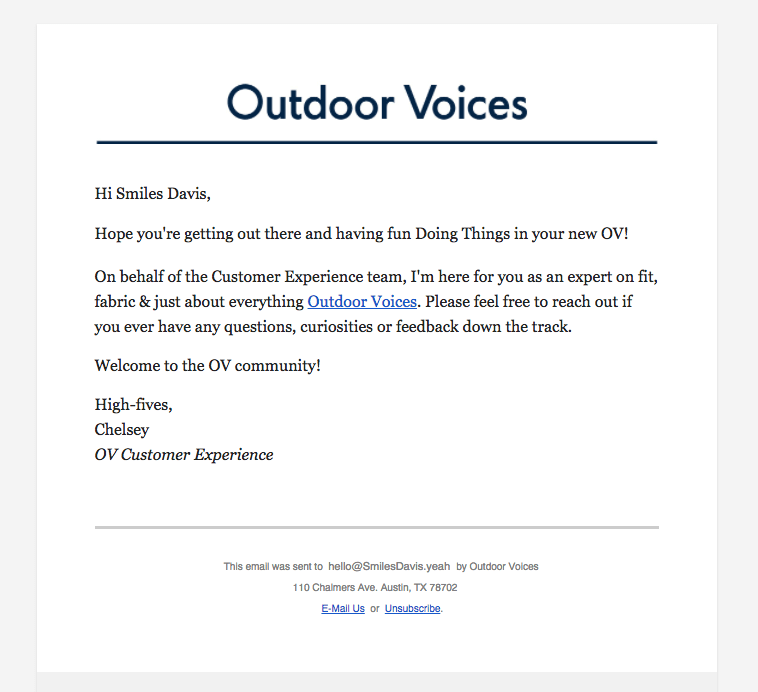
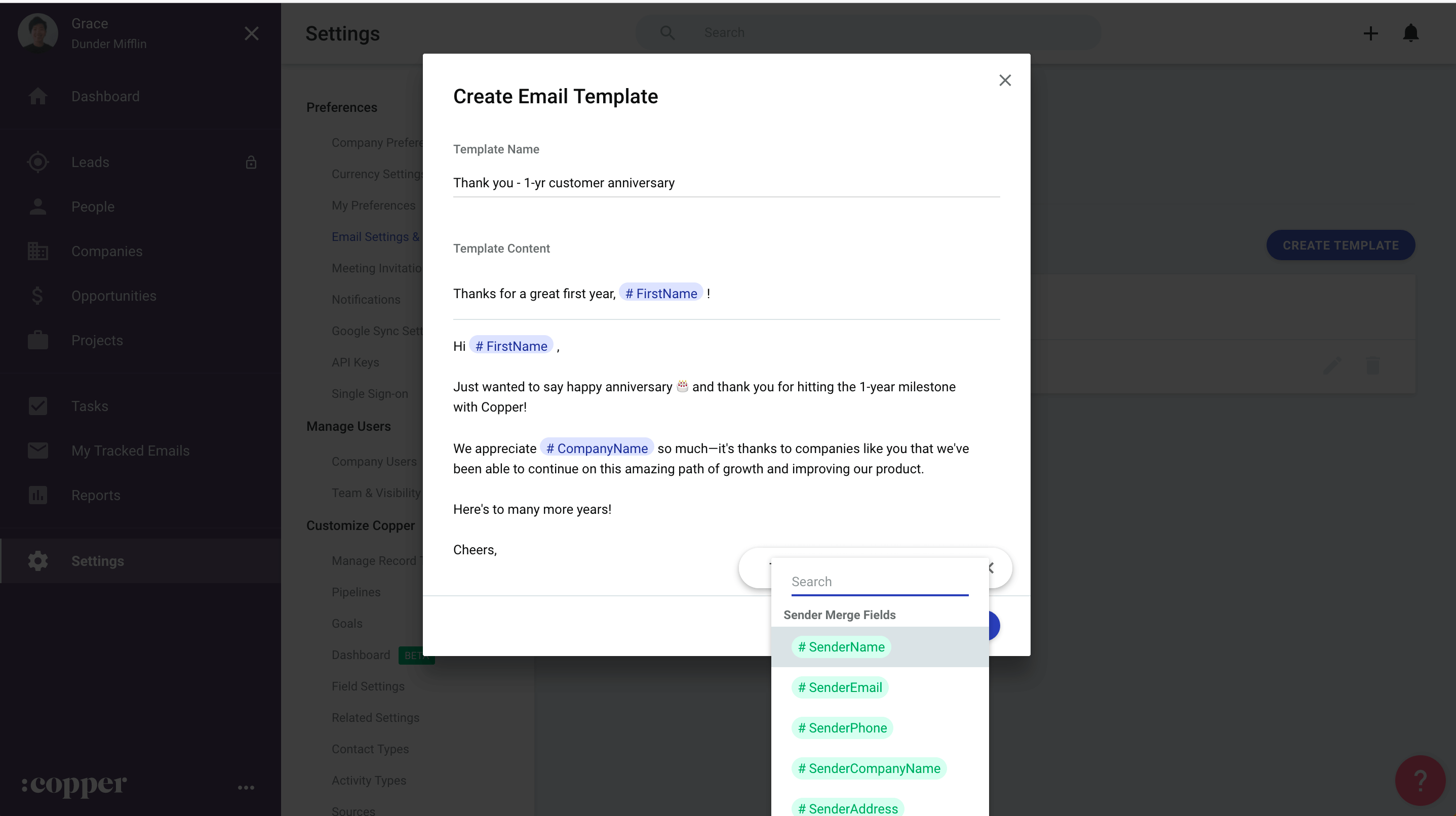
No comments:
Post a Comment